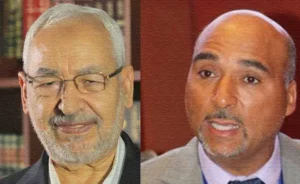Since the dissolution of the Supreme Judicial Council in February 2022 and the arbitrary dismissal of 49 judges, the judicial system has been subjected to continuous targeting and unprecedented attempts to subjugate it to work under the orders of the executive.
The Freedom for Tunisia Observatory calls on the Tunisian authorities to stop undermining the constitutional and legal guarantees of the independence of the judiciary, following the serious incident that occurred on Saturday, January 18, 2025, at the headquarters of the Tunisian Judges Association.
According to a statement by the Tunisian Judges Association, the first assistant to the public prosecutor at the Tunis Court of First Instance stormed the Association’s headquarters, accompanied by a security officer, demanding the immediate evacuation of the headquarters during a meeting of the Association’s executive office. This attack is a flagrant violation of the judges’ rights to organize and express themselves, and represents a direct threat to the independence of the judiciary and to the pivotal role it plays in protecting rights and freedoms.
The Observatory strongly condemns this attack and expresses its deep concern about:
- Violation of the right of judges to assemble and organize: The incident sets a dangerous precedent in targeting judges and restricting their role in defending the basic guarantees of the independence of the judiciary.
- Increasing executive pressure on the judiciary: The executive authority’s persistence in targeting judges and their representative bodies threatens the rule of law and undermines confidence in institutions.
- Involvement of some judicial officials: We strongly condemn the acceptance by some judicial officials (such as the public prosecutor and his assistant) of being tools for implementing policies that undermine the independence of the judiciary, which harms the image of the Tunisian judiciary and increases the risk of its subordination to the executive.
The Observatory calls on the Tunisian authorities to:
- Immediately cease all interference in the affairs of the judiciary and abide by the constitutional guarantees that protect its independence and structures.
- Adhere to the international standards signed by Tunisia, including the UN Basic Principles on the Independence of the Judiciary and the conventions related to freedom of association.
- Protecting judges and putting an end to all forms of pressure and intimidation directed against them, away from all political pressures.
The Observatory also urges the international community and human rights organizations to intensify efforts to follow up on this dangerous escalation against the judiciary, and to confront attempts to undermine the rule of law.
We stress that any infringement on the independence of the judiciary poses a threat to fundamental freedoms, and we affirm our commitment to continue defending the independence of the judiciary and working with all national and international partners to protect democracy and justice.





